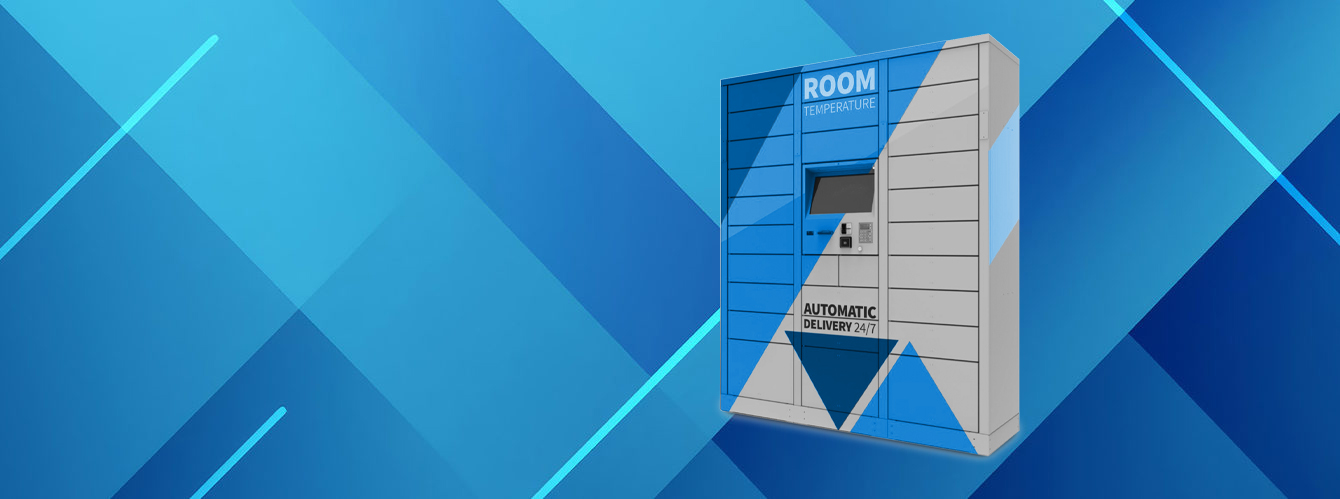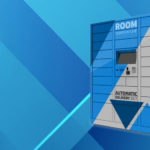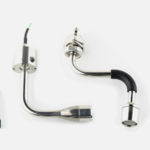The rise of digital technology and changing consumer habits have profoundly transformed the healthcare sector, and the role of pharmacies in particular. Faced with these new challenges, pharmacies must adapt to offer optimal customer service, while guaranteeing the security and confidentiality of medicines. In addition, the US federal authorities are stepping up their investigations into Department of Veterans Affairs medical centers, due to a sharp rise in opioid thefts, missing prescriptions and unauthorized use by employees. In this context intelligent lockers is an innovative, high-performance solution to meet the needs of pharmacies and their patients.
What is an intelligent pharmacy locker?
An intelligent pharmacy locker is a system of automated, secure lockers, enabling patients to retrieve their medication autonomously, 24/7. The system can consist of several lockers of different sizes, equipped with a digital interface and an electronic locking system.
How it works is simple: the pharmacist places the medication in a locker, and the patient receives a notification (SMS or email) with a unique code enabling them to unlock the locker and pick up their order.
The benefits of intelligent lockers for pharmacies
Intelligent lockers offer many advantages for pharmacies:
- Improving customer service: 24/7 availability, saving time for patients and eliminating queues3.
- Enhanced security : Secure drug storage, traceability of withdrawals, reduced risk of theft or error.
- Greater accessibility : Smart lockers can improve accessibility for disabled patients, enabling them to retrieve their medication independently and at their convenience.
- Hygiene and health safety : Intelligent racks help maintain a clean, sanitary environment for drug storage, minimizing handling and the risk of contamination.
- Space optimization : Saves counter space, improves pharmacy organization.
- Customer loyalty : Innovative, practical service, improved customer experience.
- Freeing up pharmacists' time: By automating medication dispensing, smart lockers enable pharmacists to devote more time to consultations and personalized care.
- Confidentiality : Discreet removal of drugs, especially for sensitive treatments.
Key features of a high-performance intelligent locker
To choose the right smart locker for your needs, it's important to consider a few key features:
- Integration with the pharmacy IT system: Allows automated management of prescriptions and notifications.
- Different authentication options : PIN code, QR code, loyalty card, etc.
- Payment management system : Allows patients to pay online or at the locker.
- Tracking and tracing withdrawals : Transaction logging, withdrawal history.
- Monitoring and warning system : Security camera, temperature sensors, incident alarms.
- Modularity and scalability : Lockers can be added as required.
- Various locker sizes: Lockers of different sizes are available to meet the needs of patients and healthcare professionals.
How can you integrate an intelligent locker into your pharmacy?
Integrating a smart locker into your pharmacy requires careful planning and organization. Here are the key steps to follow:
- Define your needs :
- Determine the number of racks you need, based on the volume of prescriptions and the number of people using your pharmacy.
- Choose the rack sizes best suited to the types of drugs you dispense.
- Identify the features that are essential for your pharmacy, such as integration with your IT system, payment options, monitoring and alerts.
- Choose a reliable supplier:
- Look for experienced suppliers recognized for the reliability of their systems and the quality of their after-sales service.
- Compare the different offers and solutions available on the market, taking into account your specific needs.
- Choose suppliers who offer personalized support and technical assistance.
- Installing the system :
- Choose a strategic location for your smart lockers, easily accessible to patients and secure.
- Make sure your chosen location complies with current safety and accessibility regulations.
- Provide clear signage to guide patients to smart lockers.
- Integrate the locker into your IT system:
- Work closely with your smart locker supplier and your IT system provider to ensure seamless integration and optimum communication between the two systems.
- Test system integration to ensure smooth operation and avoid distribution errors.
- Train your staff:
- Train your entire staff to use the intelligent locker system, manage prescriptions and assist patients.
- Set up clear procedures for managing prescriptions, depositing medicines in lockers and resolving any incidents.
- Communicating with your patients:
- Inform your patients about this new service using a variety of communication channels (in-store displays, website, social networks, email, SMS).
- Clearly explain how to use smart lockers and the advantages they offer (time savings, flexibility, confidentiality).
- Provide information materials (brochures, video tutorials) to help patients get to grips with the system.
Legal and ethical considerations
The use of smart lockers for dispensing medication raises important legal and ethical issues that pharmacies need to consider.
- Maintaining interaction with the patient: It is essential to ensure that the use of smart lockers does not replace interaction between pharmacist and patient. Pharmacists must remain available to answer questions, provide advice and monitor treatment.
- Obligation to advise : Regulations require pharmacists to provide advice to patients when dispensing medicines. It is important to put in place mechanisms to meet this obligation, for example by offering telephone or online consultations, or by integrating health questionnaires into the ordering process.
- Traceability of exchanges : All exchanges between the pharmacist and the patient, including advice and information on medicines, must be traced and documented, in accordance with regulations.
- Medication storage : Medicines must be stored in appropriate conditions to guarantee their quality and efficacy. Smart lockers must be equipped with temperature and safety control systems to ensure proper storage of medicines.
- Privacy policy : Professional secrecy and the confidentiality of patient data must be respected when using smart lockers. Pharmacies must ensure that the intelligent locker system complies with current regulations on the protection of personal data.



